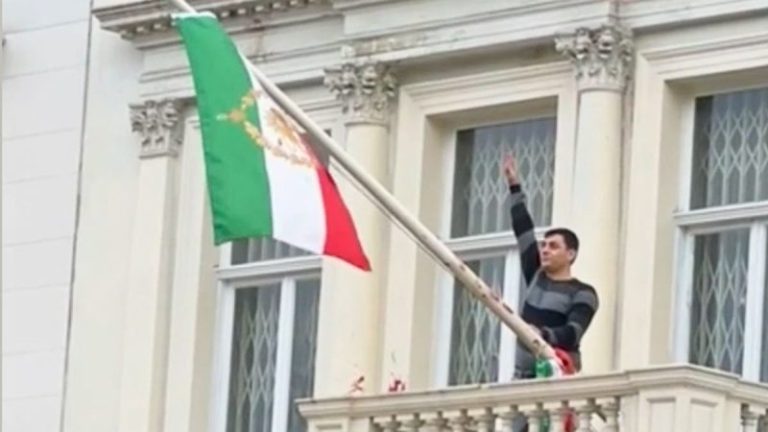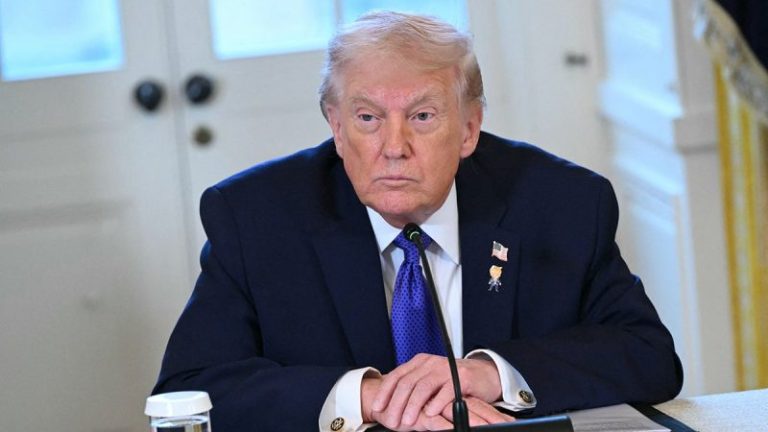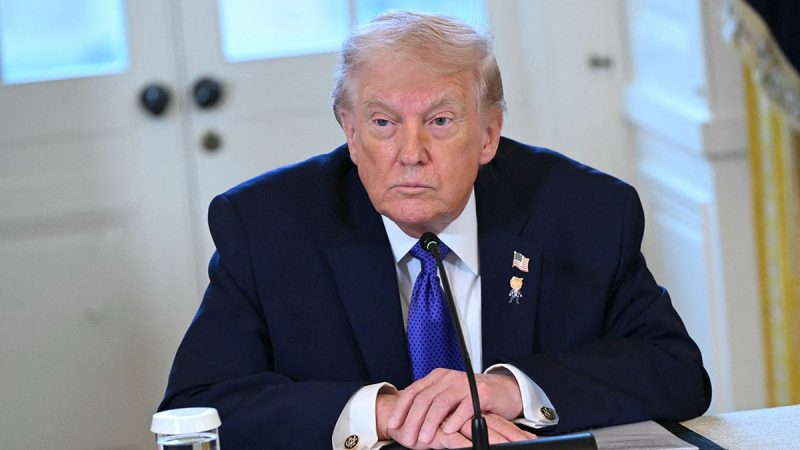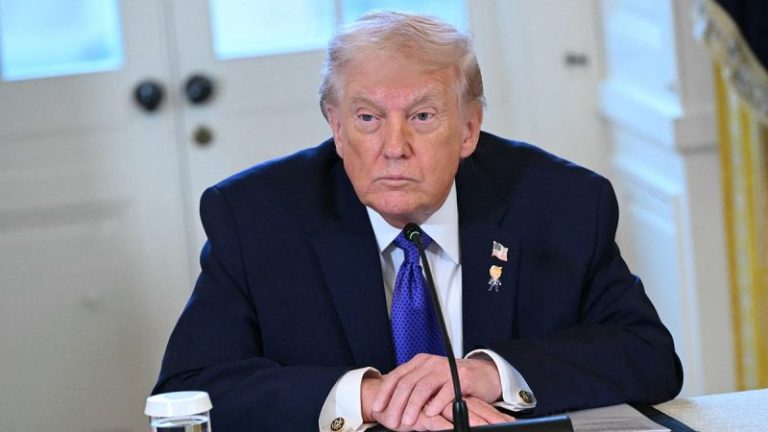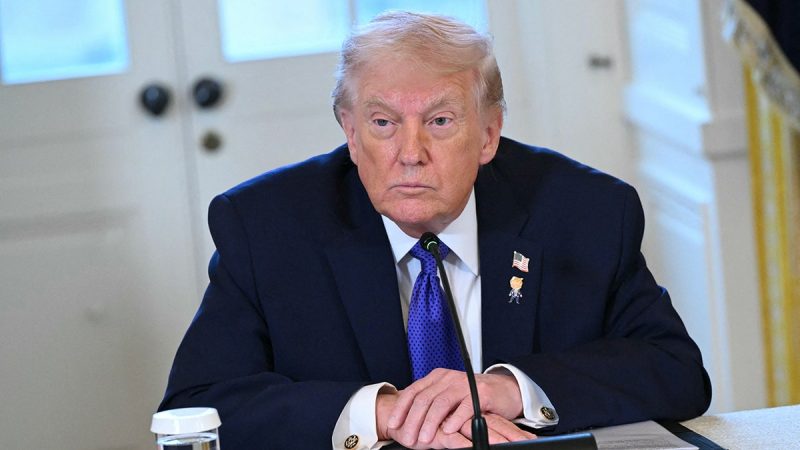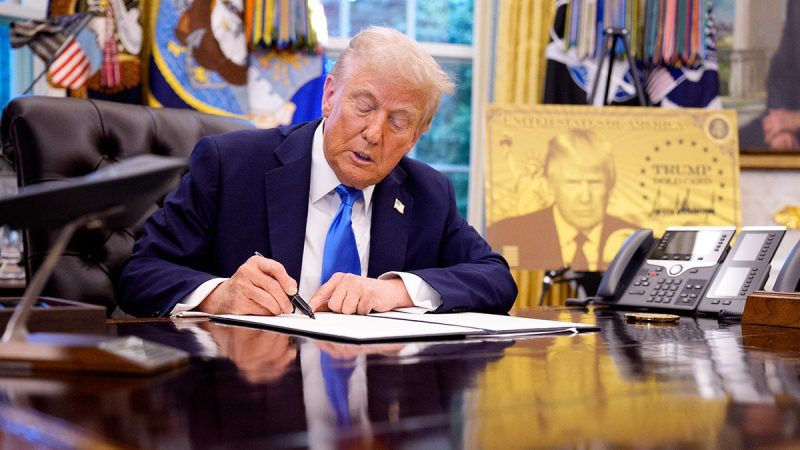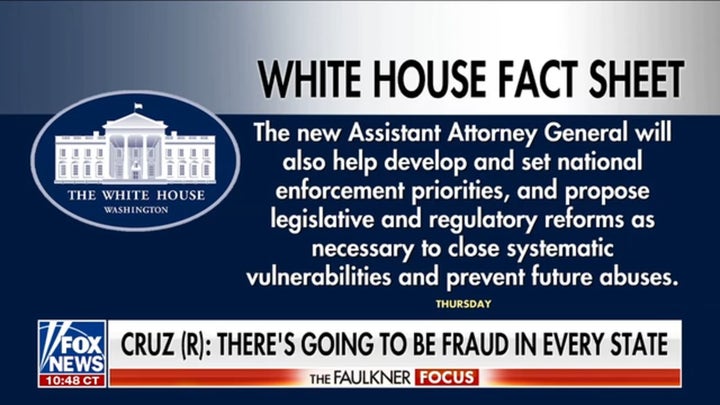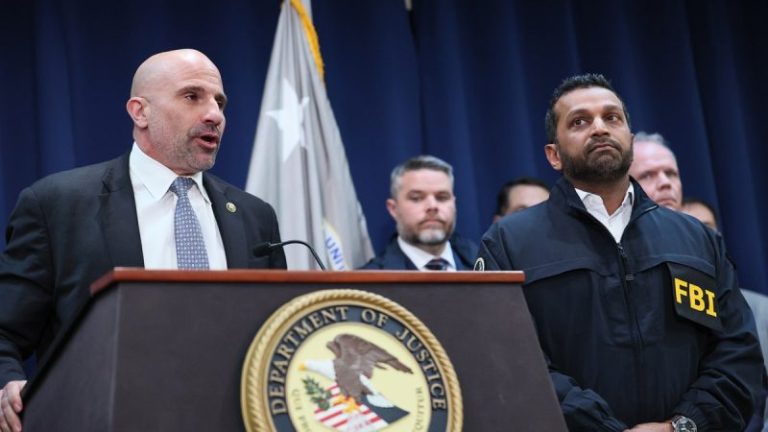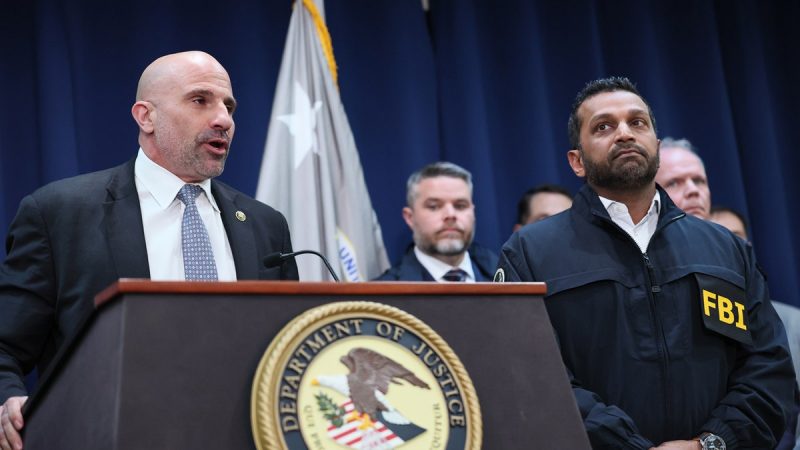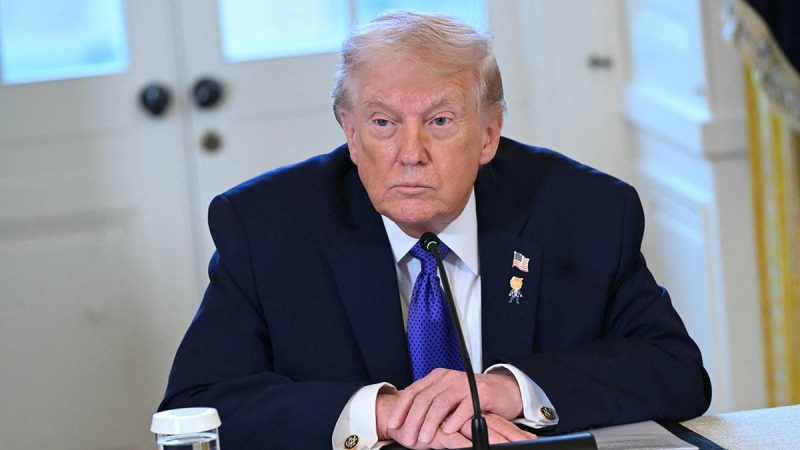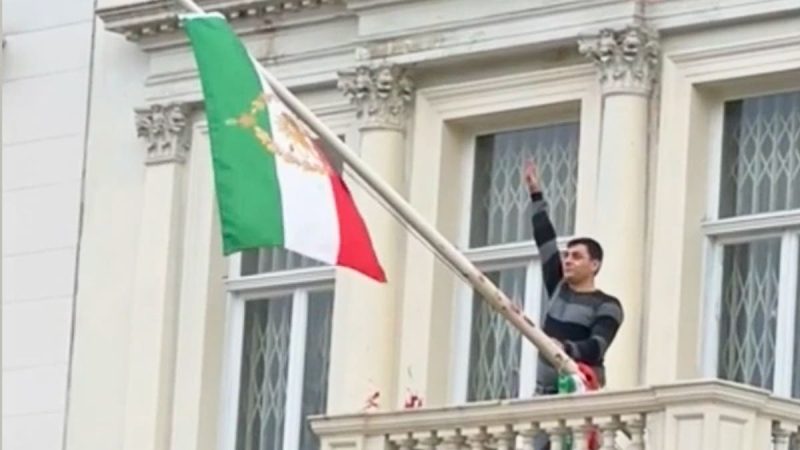
An anti-regime protester scaled the balcony of Iran’s Embassy in London on Friday and tore down the Islamic Republic’s flag, replacing it with Iran’s pre-1979 ‘Lion and Sun’ emblem, video shows.
The demonstrator climbed the front of the embassy building in Kensington before ripping down the regime’s flag and hoisting the historic symbol associated with Iran’s monarchy prior to the 1979 Islamic Revolution as a large crowd of anti-regime protesters cheered on.
The Metropolitan Police said officers responded to the scene and made two arrests — one for aggravated trespass and assault on an emergency worker, and another for aggravated trespass. Police said they are also seeking another individual for trespass. It was not immediately clear whether the protester who tore down the flag was among those arrested.
Fox News Digital reached out to Iran’s Embassy in London for comment but did not receive a response by the time of publication.
The embassy protest comes as Iran faces its most significant wave of unrest in years. President Trump has warned the regime that the U.S. will protect protesters if necessary.
Potkin Azarmehr, a British-Iranian journalist, said the current unrest stands in sharp contrast to Iran’s 2009 Green Movement, when protesters openly questioned whether the Obama administration supported them.
‘What a contrast to Obama’s time, when protesters in Iran were chanting, ‘Obama, are you with us or with them?’’ Azarmehr told Fox News Digital.
‘Any international support, whether at the grassroots or government level, is encouraging,’ he said.
He said global attention matters to protesters on the ground, but questioned the lack of visible demonstrations by Western activist groups.
‘The question is where are the Western activist elite protesters? Why are they not protesting? Are they on the side of the ayatollahs? An archaic religious apartheid?’
Demonstrations that began on Dec. 28 over economic grievances have since spread nationwide, evolving into a direct challenge to Iran’s clerical leadership. Solidarity protests with Iranian demonstrators have also emerged in other major European cities, including Paris and Berlin. A protest also took place outside the White House in Washington, D.C.
As of Saturday, at least 72 people have been killed and more than 2,300 detained in Iran-based protests, according to the U.S.-based Human Rights Activists News Agency.
Some protests have included chants supporting Iran’s former monarch, Shah Mohammad Reza Pahlavi, who died in 1980. His son, Reza Pahlavi, has publicly called for continued demonstrations. The Iranian regime has also cut nationwide internet access.
At a press conference in Washington, D.C., on Friday, Trump said Iran was facing mounting pressure.
‘Iran’s in big trouble,’ Trump said. ‘It looks to me that the people are taking over certain cities that nobody thought were really possible just a few weeks ago. We’re watching the situation very carefully.’
Trump warned the United States would respond forcefully if the regime resorts to mass violence.
‘We’ll be hitting them very hard where it hurts,’ Trump said. ‘And that doesn’t mean boots on the ground, but it means hitting them very, very hard where it hurts.’
Supreme Leader Ayatollah Ali Khamenei has signaled a coming clampdown despite U.S. warnings, according to The Associated Press.
Tehran escalated its threats Saturday, with Iran’s attorney general, Mohammad Movahedi Azad, warning that anyone taking part in protests would be considered an ‘enemy of God,’ a charge that carries the death penalty. The statement, carried by Iranian state television, said even those who ‘helped rioters’ would face the charge.
‘Prosecutors must carefully and without delay, by issuing indictments, prepare the grounds for the trial and decisive confrontation with those who, by betraying the nation and creating insecurity, seek foreign domination over the country,’ the statement read.
‘Proceedings must be conducted without leniency, compassion or indulgence.’
Fox News’ Efrat Lachter, Greg Norman and The Associated Press contributed to this report.

